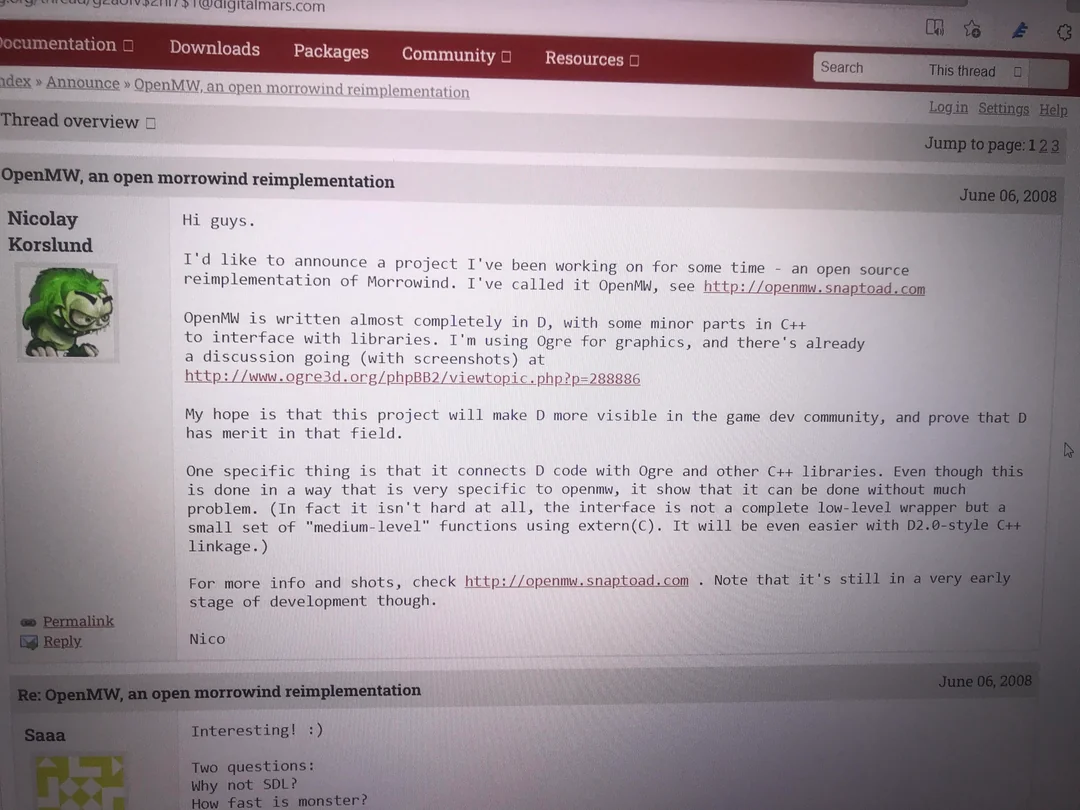It’s easy to get pressured into thinking it’s your responsibility. There’s also the risk that an unhappy company will make a non-copyleft clone of your project, pump resources into it until it’s what everyone uses by default, and then add proprietary extensions so no one uses the open-source version anymore, which, if you believe in the ideals of Free Software, is a bad thing.
AnyOldName3
- 10 Posts
- 77 Comments
There was an EU-wide one that gota lot of its funding redirected to AI stuff recently that you might be thinking of.
A rusty crowbar is also red because of the iron atoms that compose it, but it’s not mansplaining to take issue with someone telling people they’re eating crowbars.

 31·1 month ago
31·1 month agoNo, that is an entirely unrelated bad decision. It being okay to not have a popup to opt out of secure boot when it does its one job and notices you’re about to run insecure code in kernel mode doesn’t make every other user-hostile thing Microsoft ever does magically okay.

 6·1 month ago
6·1 month agoIt’s upstream GRUB that’s decided the older GRUB versions are insecure and not to be trusted. Microsoft just propagated that to machines running distros that weren’t shipping patched GRUB builds yet. Up-to-date Debian wouldn’t be affected provided that they downstreamed fixes quickly.
https://fedia.io/m/linux@lemmy.ml/t/1111595/-/comment/6916699 says that Debian’s GRUB wasn’t affected, but another part of the boot sequence was.

 104·1 month ago
104·1 month agoYou can’t trust users to make informed decisions about cybersecurity as most users don’t have the necessary background knowledge, so won’t think beyond this popup is annoying me and has a button to make it go away and I am smart and therefore immune to malware. Microsoft don’t want Windows to have the reputation for being infested with malware like it used to have, and users don’t want their bank details stolen. If something’s potentially going to be a bad idea, it’s better to only give the decision to people capable of making it an informed decision. That’s why we don’t let children opt into surgery or decide whether to have ice cream for dinner, and have their parents decide instead.
The comment you’re quoting was replying to someone suggesting a warning popup, and saying it would be a bad idea, rather than suggesting the secure boot UEFI option should be taken away. You need at least a little bit more awareness of the problem to know to toggle that setting.

 8·2 months ago
8·2 months agoYes. Every time, it’s gone less well than opening a banana from the stem end, unless the banana was horrendously underripe. I’ve never had the problem the alternative approach is claiming to fix unless I’ve intentionally opened the banana badly on purpose to prove a point about the problem really being people opening from the stem end incompetently.

 9·2 months ago
9·2 months agoA) The peel becomes easier to tear faster than the inside gets softer. You don’t need to snap it, it doesn’t need nearly enough tension to count as a snap once it’s ripe.
B) The banana’s been selectively bred to want to be as delicious as possible. It only wants you to be happy.

 92·2 months ago
92·2 months agoBananas are the way they are through millenia of selective breeding, so there’s no reason to think that monkeys know anything we don’t. If pinching the bottom is easier than bending the stem, your banana isn’t ripe yet and doesn’t want to be eaten until later.

 11·2 months ago
11·2 months agoIf anyone’s in this thread because they’re looking for a new mail client after Microsoft killed the old Mail app, and haven’t been happy with the typical suggestions of using each email service’s web interface or Thunderbird, I found I don’t hate Mailspring (with the fancy features disabled - I just want my email client to do email well and don’t want extras that provide clutter).

 334·3 months ago
334·3 months agoThey’re not supposed to have trust. That’s why they’re only allowed fully anonymised data under this scheme. They do pay the bills, though, so they can’t be completely banished until there’s an alternative source of money.
It does ask, but often the Yay, thanks for changing my setting that I didn’t ask you to change button is much more prominent than the Wtf I didn’t ask for this put it back how it was button, so people think they’re being told rather than asked and just confirm it without realising they had a choice. Also, a lot of people just click the Next/OK button without reading and are surprised by the consequences. It’s not a major difference than just changing the setting of people don’t realise they’re being asked to opt in and can therefore opt out, but it is a bit of a difference.

 1·3 months ago
1·3 months agoThey banned someone for a few weeks who’d comment Dub time on dubs after some weirdos got irrationally angry about it and mass reported her. There’d also be a meaningful comment on the actual episode from the same user, but it wouldn’t be upvoted as much, so wouldn’t be displayed as prominently. Before the ban and after it was reversed, there’d typically be an argument in the replies to the Dub time comment between people angrily ranting about it and other people defending it.
So there clearly was some moderation, but beyond an automated bad word filter, and I guess something blocking URLs, it was done sparingly and reluctantly.

 32·3 months ago
32·3 months agoBetter have comments on Crunchyroll than make me go to R*ddit to find out if I missed something in an episode, especially as anime subreddits typically start permitting episode spoilers before the dub for that episode is out, so there’s often nowhere except the dub comments on Crunchyroll that’s safe to look for dub watchers.

 12·3 months ago
12·3 months agoSuper useful for something like Overlord, where scenes with background information were cut and there’d be someone saying what else you’d know by this point in the manga, or if you’d forgotten something since watching a previous season and needed a reminder.

 2·3 months ago
2·3 months agoAbbott was talking about it in general whereas the report was talking about it specifically within the labour party.

 31·4 months ago
31·4 months agoThey’re hardly good at impressions, either. Everyone from north of Essex has the same voice, and they have to announce who everyone is when they start talking as if it’s The Archers.

 2·4 months ago
2·4 months agoIt doesn’t necessarily work that way, though. If tests tell you you broke something immediately, you don’t have time to forget how anything works, so identifying the problem and fixing it is much faster. For the kind of minor bug that’s potentially acceptable to launch a game with, if it’s something tests detect, it’s probably easier to fix than it is to determine whether it’s viable to just ignore it. If it’s something tests don’t detect, it’s just as easy to ignore whether it’s because there are no tests or because despite there being tests, none of them cover this situation.
The games industry is rife with managers doing things that mean developers have a worse time and have the opposite effect to their stated goals. A good example is crunch. It obviously helps to do extra hours right before a launch when there’s the promise of a holiday after the launch to recuperate, but it’s now common for games studios to be in crunch for months and years at a time, despite the evidence being that after a couple of weeks, everyone’s so tired from crunch that they’re less productive than if they worked normal hours.
Games are complicated, and building something complicated in a mad rush because of an imposed deadline is less effective than taking the time to think things through, and typically ends up failing or taking longer anyway.

 51·4 months ago
51·4 months agoYou can lose trademarks, but this is a copyright issue. You don’t have to defend copyright to keep it.











It also doesn’t help that once you’ve paid the large fee for the Pro version, it doesn’t actually guarantee any support if you encounter a bug. You get access to a different issue tracker, and might get a Unity employee to confirm that the bug exists after a couple of months (and maybe close it as a duplicate, then reopen it as not a duplicate when the fix for the other bug doesn’t help, then reclose it as a duplicate when it turns out the fix for the other bug also doesn’t fix the other bug, and at the end of a multi-month process, there still being a bug with no indication an engineer’s looked at it).
Anyway, I’m glad to no longer be working for a company that uses Unity.